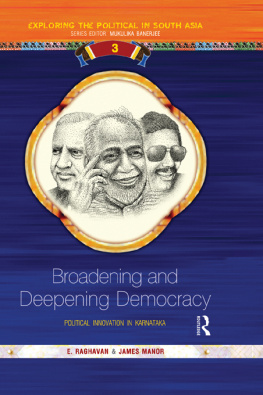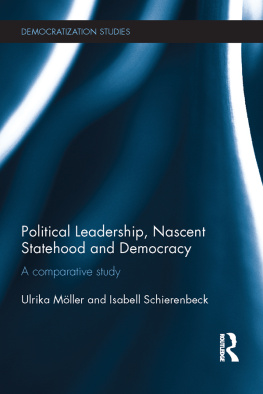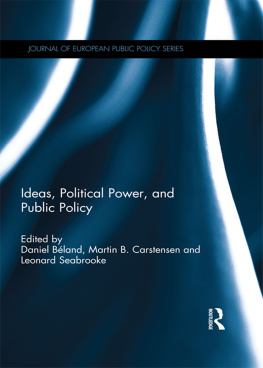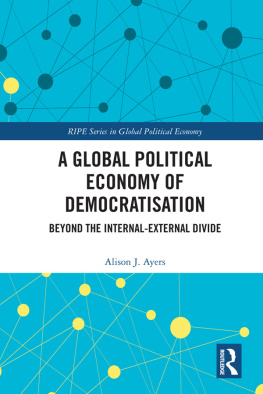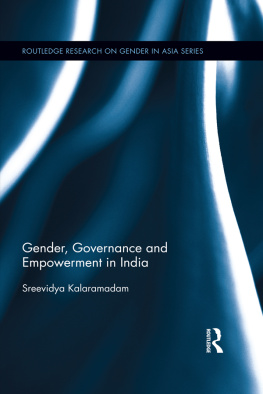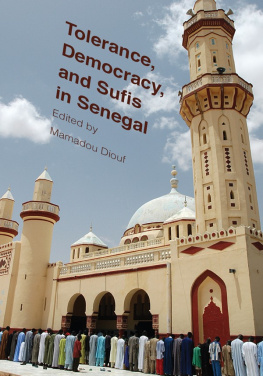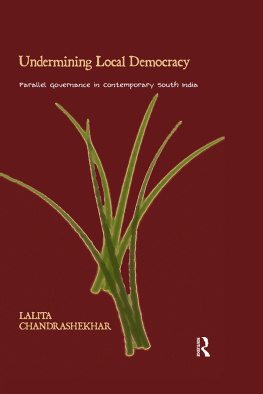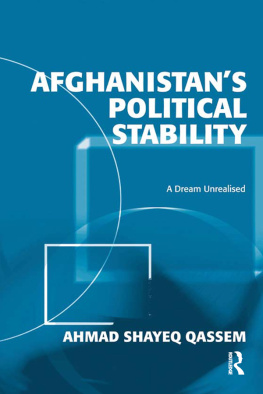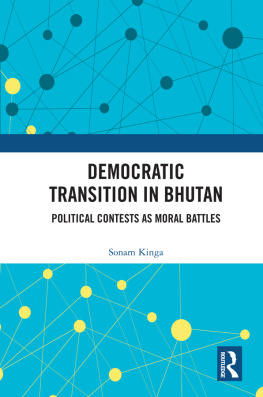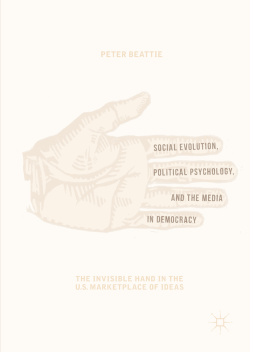Broadening and Deepening Democracy
Exploring the Political in South Asia
| Series Editor: | Mukulika Banerjee |
| Reader in Anthropology, University College London. |
Exploring the Political in South Asia is devoted to the publication of research on the political cultures of the region. The books in this Series will present qualitative and quantitative analyses grounded in field research, and will explore the cultures of democracies in their everyday local settings, specifically the workings of modern political institutions, practices of political mobilisation, manoeuvres of high politics, structures of popular beliefs, content of political ideologies and styles of political leadership, amongst others. Through finegrained descriptions of particular settings in South Asia, the studies presented in this Series will inform, and have implications for, general discussions of democracy and politics elsewhere in the world.
Also in this Series
The Vernacularisation of Democracy: Politics, Caste and Religion in India
Lucia Michelutti
ISBN: 978-0-415-46732-2
Rise of the Plebeians? The Changing Face of Indian Legislative Assemblies
(Eds) Christophe Jaffrelot and Sanjay Kumar
ISBN: 978-0-415-46092-7
Broadening and Deepening Democracy
Political Innovation in Karnataka
E. Raghavan
James Manor
First published 2009
by Routledge
912915 Tolstoy House, 1517 Tolstoy Marg, New Delhi 110 001
Simultaneously published in the UK
by Routledge
2 Park Square, Milton Park, Abingdon, OX14 4RN
Routledge is an imprint of the Taylor & Francis Group, an informa business
Transferred to Digital Printing 2009
2009 E. Raghavan and James Manor
Typeset by
Star Compugraphics Private Limited
D156, Second Floor
Sector 7, Noida 201 301
All rights reserved. No part of this book may be reproduced or utilised in any form or by any electronic, mechanical or other means, now known or hereafter invented, including photocopying and recording, or in any information storage and retrieval system without permission in writing from the publishers.
British Library Cataloguing-in-Publication Data
A catalogue record of this book is available from the British Library
ISBN: 978-0-415-54454-2
To our families
List of Tables
List of Abbreviations
| AIADMK | All India Anna Dravida Munnetra Kazhagam |
| BDO | Block Development Officer |
| BJP | Bharatiya Janata Party |
| BSP | Bahujan Samaj Party |
| CPI | Communist Party of India |
| CPI (M) | Communist Party of India (Marxist) |
| DMK | Dravida Munnetra Kazhagam |
| MP | Member of Parliament |
| RSS | Rashtriya Swayamsevak Sangh |
| TDP | Telugu Desam Party |
| UP | Uttar Pradesh |
Glossary
| Adivasis | Scheduled Tribes |
| boosa | Cattle-feed |
| chaku-churi | Knife and dagger |
| Dalits | Scheduled Castes |
| dharna | A sit-in strike; a protest |
| gherao | To take someone temporary prisoner, in order to register a point |
| goonda | A thug |
| jati | An endogamous caste group, that is, a group within which people find marriage partners for their children. |
| kurta | Shirt |
| Lok Sabha | The Lower House of the Indian Parliament |
| Lokayukta | The states obudsman |
| math | Monastery |
| Mandal Panchayats | Elected councils at local levels |
| mela | A mass gathering |
| neeru | Kannada for water |
| Nyaya Panchayats | Village councils to settle petty disputes |
| panchayat | Village council |
| pooja | An act of worship; reverential observance |
| pradhan | Leader |
| ragi | A millet much grown in India |
| Raj Bhavan | The common name of the official residence of the state Governors in India |
| Rajya Sabha | The Upper House of the Indian Parliament |
| Rashtrapati Bhavan | The official residence of Indias President. |
| sab | A corrupted variant of the Urdu word saheb, used as a form of address to people of rank |
| satyagraha | A campaign of non-violent civil disobedience. |
| swamiji | Often a form of address for a Hindu religious instructor |
| taluk | sub-district |
| Taluk Panchayat Samitis | Elected councils at the sub-district level |
| vanavas | Literally, living in a forest; figuratively, banishment |
| Veerasaivism | A religious reform movement within Hinduism |
| Vidhana Souda | The Karnataka state assembly building |
| Zilla Parishads | Elected councils at the district level |
Foreword
T his third book in the series Exploring the Political in South Asia is a truly unusual one in the field of Indian politics. Eschewing analysis at the level of generalities and national trends, the authors of this book turn their scholarly attention to a single state Karnataka, in southern India and its politics. This is one of the larger states in India, and Raghavan and Manor bring together their formidable knowledge, gathered during their parallel careers in journalism and academia, to provide an accessible and exciting text that provides an explanation for why the state has enjoyed an unusual stability and relative prosperity in a progressively democratising climate, compared to several other states within the Indian union.
Karnataka makes for an interesting case on account of an unusual political past. Despite being a predominantly rural state, the incidence of landlessness here has been amongst the lowest in the country, the ruling classes of the princely state of Mysore were not linked to dominant castes, franchise had been introduced remarkably early (in 1882), and the local rulers developed a distinct style of statecraft that involved anticipation and defusing of conflict. The authors demonstrate the notable persistence of this manner of statecraft into the post-independence period. They do this by looking in detail at the role of three men who have served as Chief Ministers of the state: Devaraj Urs, Ramakrishna Hegde and Gundu Rao, in the two decades of the 1970s and 1980s. The first two are the heroes of this story, men who had the political nous and vision to preserve and perpetuate the political traditions of their predecessors. The authors argue that on their watch, three major changes took place: the dominance of the Lingayats and Vokkaligas gave way to coalitions of greater diversity of social groups; voters gained a genuine choice after 1983 as the dominance of the Congress Party was broken; and the centralised and top-heavy bureaucratic system gave way to greater powers at local levels. The authors show how Urs and Hegde broadened and deepened democracy through a number of different strategies, all of which have stopped Karnataka going the way of some other Indian states where power has become over-centralised or where political parties have come to be associated with particular caste groups. Instead, the accommodative tradition of politics in Karnataka has forced leaders of all major political parties to cultivate support from all and the

